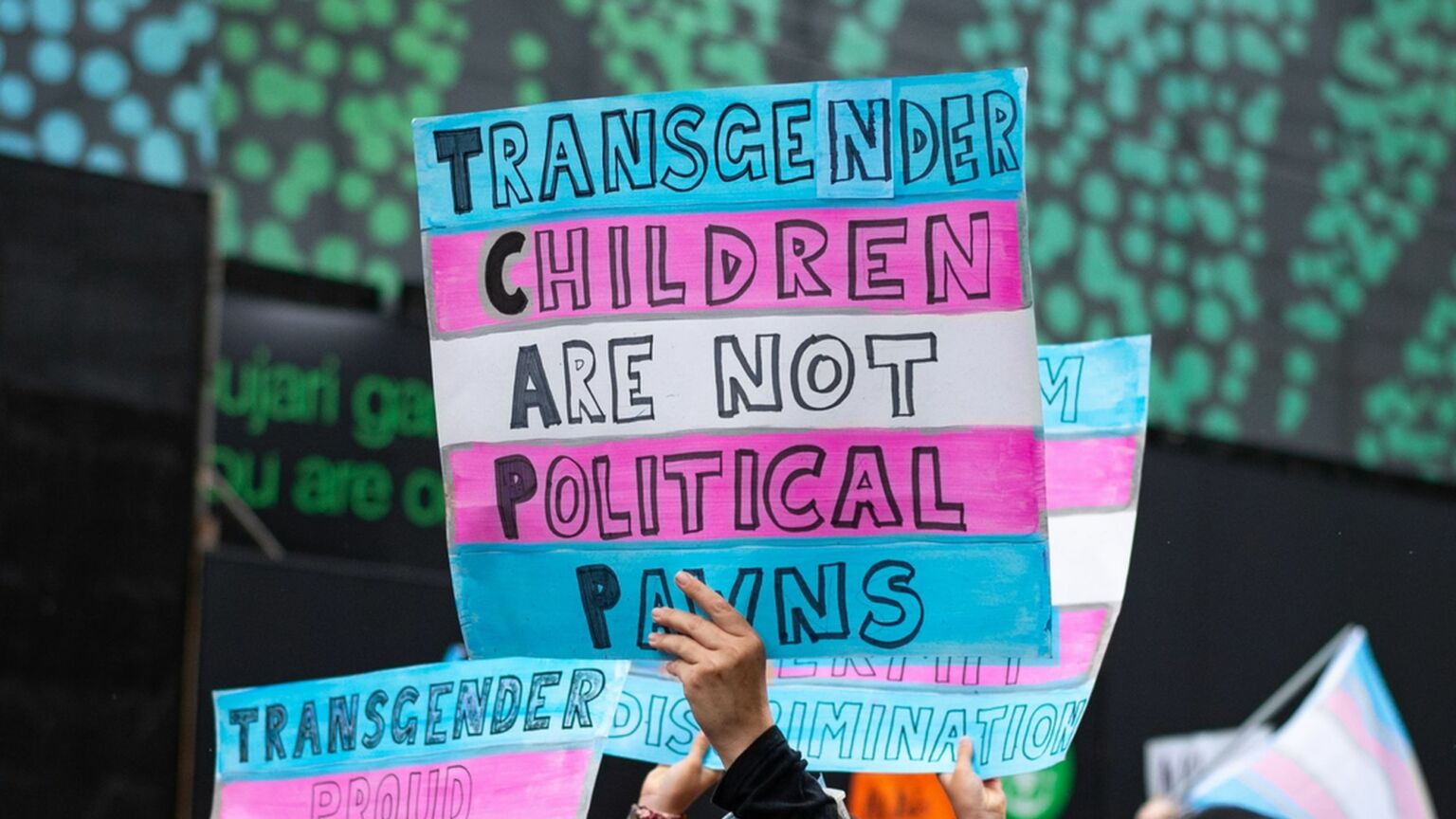The NHS is still pandering to trans ideologues
Despite the puberty-blocker ban, teenagers are still being offered cross-sex hormones.

Want to read spiked ad-free? Become a spiked supporter.
NHS England’s approach to youngsters who are struggling with their gender is nothing short of schizophrenic. Just over a week after it was announced that puberty blockers would no longer be prescribed to children, the NHS now says that teenagers who are too young to get a tattoo should still be allowed to inject cross-sex hormones.
This dangerous advice was published yesterday, in a policy document titled, ‘Prescribing of gender-affirming hormones (masculinising or feminising hormones) as part of the children and young people’s gender service’. The language and assumptions throughout the document make it sound more like the work of a trans lobby group, like Stonewall or Mermaids, than that of serious medical professionals. The idea that giving testosterone to girls and oestrogen to boys is ‘gender affirming’ is an ideological stance – it goes against both common sense and the medical evidence.
The new guidance states that young people should be able to avail themselves of cross-sex hormones from their 16th birthday onwards. The main criteria for this is that the adolescent patient has been diagnosed with ‘gender incongruence’ and ‘understands’ the risks these hormones pose – which include infertility, damage to organs and an increased risk of disease.
Sixteen-year-olds who identify as ‘nonbinary’ will also be eligible for masculinising or feminising hormones. Highly distressed youngsters, including those who are experiencing ‘psychotic episode[s], drug addiction or self-harm’, will also be allowed these hormones. The only caveat is that their behaviour must not be escalating. Oh, and they should preferably be non-smokers, because ‘smoking can have a negative effect on the development of the secondary-sex characteristics’, according to the guidance. So smoking bad, infertility fine?
Stephanie Davies-Arai, founder of Transgender Trend, which campaigns for an evidence-based approach to treating youngsters who are confused about their sex, warns that NHS England’s new policy will make it ‘easier for the most vulnerable group of adolescents to go on to cross-sex hormones’. As she points out, systematic reviews by NICE (the National Institute for Health and Care Excellence) of both puberty blockers and cross-sex hormones have found exactly the same results: there is very little evidence that they are safe or effective at improving people’s mental health or body image. ‘The NHS has banned blockers but given the green light to hormones with serious lifelong consequences, in breach of the most basic standards of evidence-based medicine, patient safety and duty of care’, she tells me.
More often than not, the NHS puts trans ideology ahead of patient safety. This week, the Telegraph revealed that Kooth, an NHS-backed mental-health website for youngsters aged 11 to 18, has been placed under investigation. People working for the site have been accused of directing schoolchildren to websites that promote the use of hormones and breast binding. The Kooth website itself, which received more than £3million per year of funding from the NHS, describes gender transition as ‘unique and beautiful’. Whether directly or through third parties, our health service bears responsibility for harming children.
It is, of course, the young and vulnerable who are bearing the brunt of the trans capture of the NHS. Responsible grown-ups should know that adolescents are prone to believe abject nonsense. And they often weave their beliefs into their identity.
Tragically, today’s kids who are looking for a new identity, or teenagers who are seeking rebellion, will never be allowed to move on from their youthful beliefs. Their adolescent ideas about gender and identity risk being scored permanently into their bodies by NHS medics offering body-altering hormones and surgeries. The first waves of detransitioners and upcoming legal cases against the NHS are now making it painfully clear why it is deeply unethical and dangerous to ‘affirm’ youngsters in their chosen gender.
Often debates over how to treat young people who are confused about their identity are framed as a tussle between extremists on both sides. But this is not true. While trans lobby groups point to emotive testimonies and subjective experiences to justify the medicalisation of children, those on the other side are simply asking for clinical practice to be evidence-led. Because when the demands of trans fanatics are allowed to trump facts, it is the most vulnerable who suffer.
Jo Bartosch is a journalist campaigning for the rights of women and girls.
Picture by Nikolas Gannon on Unsplash.
To enquire about republishing spiked’s content, a right to reply or to request a correction, please contact the managing editor, Viv Regan.










Comments
Want to join the conversation?
Only spiked supporters and patrons, who donate regularly to us, can comment on our articles.